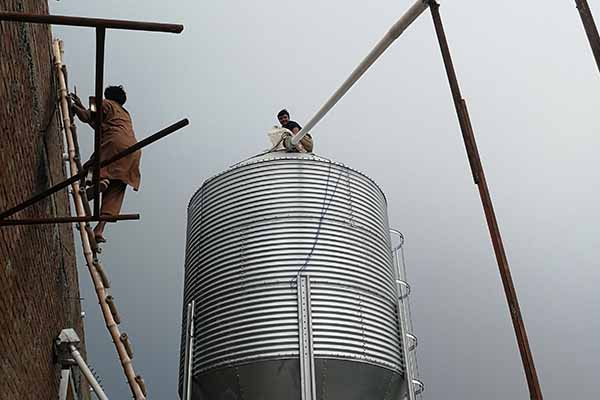How to Start a Chicken Farm in the UK: A Comprehensive Guide
Time : 2025-07-03
Starting a chicken farm in the UK can be a rewarding venture. Whether you’re aiming for commercial production or a hobby farm, understanding the process and requirements is crucial. This guide will provide you with a comprehensive overview of how to start a chicken farm in the UK, including the necessary steps, equipment, and considerations.
Step 1: Market Research and Business Plan
Before diving into the farming process, it’s essential to conduct thorough market research and create a solid business plan.
Market Research
1. Identify Your Target Market: Determine whether you’ll be focusing on egg production, meat production, or both.
2. Analyze the Competition: Understand the local competition and their offerings.
3. Understand Regulations: Ensure that your products will comply with local regulations and standards.
Business Plan
1. Define Your Farm’s Goals: Establish your long-term and short-term goals.
2. Determine Your Budget: Calculate the startup costs, including land, equipment, feed, and labor.
3. Develop a Marketing Strategy: Outline how you’ll sell your products, including direct sales, online marketplaces, or partnerships with local retailers.
Step 2: Choose the Right Location
Selecting the right location is crucial for the success of your chicken farm. Consider the following factors:
1. Accessibility: Ensure the location is easily accessible for suppliers and customers.
2. Zoning: Verify that the land is zoned for agricultural use.
3. Water and Energy Sources: Ensure there is a reliable water supply and access to electricity.
4. Proximity to Markets: Locate the farm close to your target market to reduce transportation costs.
Step 3: Purchase and Prepare the Land
1. Purchase Land: Acquire the land suitable for your chicken farm. Consider factors like soil quality, climate, and topography.
2. Clear the Land: Remove any vegetation or debris that may hinder the construction of the farm buildings.
3. Install Infrastructure: Construct necessary infrastructure, including water tanks, electrical systems, and waste management systems.
Step 4: Select the Right Chicken Breed
Choosing the right chicken breed is crucial for your farm’s success. Consider the following factors:
1. Purpose: Determine whether you need egg-laying chickens or meat chickens.
2. Hardiness: Select breeds that are well-suited to the climate of the UK.
3. Productivity: Choose breeds known for high productivity in egg or meat production.
Step 5: Purchase and Install Equipment
Investing in the right equipment is vital for efficient and effective chicken farming. Consider the following:
1. Chicken Coops: Purchase or build coops that provide adequate space, temperature control, and protection from predators.
2. Feeding Equipment: Install feeders and waterers designed for your chicken breed’s specific needs.
3. Ventilation Systems: Ensure your coops have proper ventilation to maintain a healthy environment for your chickens.
4. Incubators and Brooders: If you plan to hatch your own chicks, invest in incubators and brooders to provide a safe and controlled environment for the chicks.
Step 6: Manage Your Chickens
Proper management is essential for the health and productivity of your chickens. Consider the following:
1. Feeding and Watering: Provide a balanced diet and fresh water at all times.
2. Health Monitoring: Regularly check for signs of illness or stress and address any issues promptly.
3. Sanitation: Keep the coops clean and free of waste to prevent disease.
4. Regular Egg Collection: Collect eggs regularly to maintain their freshness and quality.
Step 7: Marketing and Sales
Develop a marketing strategy to promote your chicken farm and sell your products:
1. Build a Brand: Create a strong brand identity that resonates with your target market.
2. Direct Sales: Offer direct sales through your farm’s website or at local farmers’ markets.
3. Online Marketplaces: List your products on online marketplaces to reach a wider audience.
4. Retail Partnerships: Partner with local retailers to sell your products.
Step 8: Stay Compliant with Regulations
Ensure your chicken farm complies with all relevant regulations and standards:
1. Animal Welfare: Follow the Welfare of Animals (Licensing of Poultry Farms) Regulations 2007.
2. Food Safety: Adhere to the Food Safety Act 1990 and other relevant regulations.
3. Environmental Protection: Comply with environmental regulations and reduce waste and emissions.
Conclusion
Starting a chicken farm in the UK requires careful planning, investment in the right equipment, and diligent management. By following this comprehensive guide, you can establish a successful and sustainable chicken farm that meets the needs of your target market while adhering to regulations and standards.












